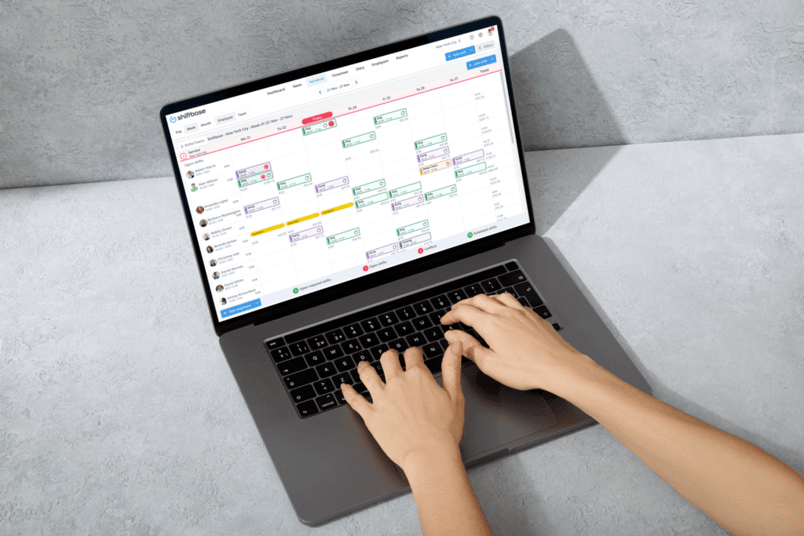HR Insights for the Future of Work
Be inspired by trends, stories, and smart solutions to cut admin and boost employee engagement.
employee scheduling (26)
HRM (23)
Absence Management (19)
Time-tracking (17)
Payroll (13)
Regulations (12)
Management (11)
Policies (5)
Product Comparison (4)

Product Comparison
Shiftbase vs RotaCloud: Smart Scheduling for UK SMEs Compared
Rinaily Bonifacio
26 November 2025

Regulations
Employment Rights Bill & the End of Exploitative Zero-Hours in Hospitality: Rota Changes SMEs Must Plan Now
Rinaily Bonifacio
26 November 2025

Payroll
How to Cut Labour Costs by 5–10% in UK Restaurants (Without Cutting Staff)
Rinaily Bonifacio
24 November 2025

Product Comparison
Shiftbase vs Papershift: Which Rota Tool is The Best Fit For Your Business?
Rinaily Bonifacio
13 November 2025

Product Comparison
Best Workforce Management Tools for Hourly Employees in 2026
Rinaily Bonifacio
8 December 2025

Product Comparison
Shiftbase vs Dyflexis: Which WFM Tool Fits Hospitality & Retail SMEs Best?
Rinaily Bonifacio
7 November 2025

Regulations
Paid Breaks vs Meal Periods vs Off-the-clock: What’s Legal?
Rinaily Bonifacio
3 November 2025

Payroll
Restaurant overtime FAQ 2025: Who's exempt and who's not and what to do now
Rinaily Bonifacio
30 October 2025

employee scheduling
What’s The ROI of Rota Software? Savings, Benchmarks & Calculator
Rinaily Bonifacio
26 November 2025

Regulations
FAQ: What Actually Counts as ‘Working Time’ For Paid Breaks and Split Shifts?
Rinaily Bonifacio
29 October 2025

Payroll
How to Implement Rolled-Up Holiday Pay For Irregular Hours Staff
Rinaily Bonifacio
29 October 2025

employee scheduling
Excel + WhatsApp vs Shiftbase: The True Cost of Rotas, Time Edits and Payroll Errors
Rinaily Bonifacio
26 November 2025